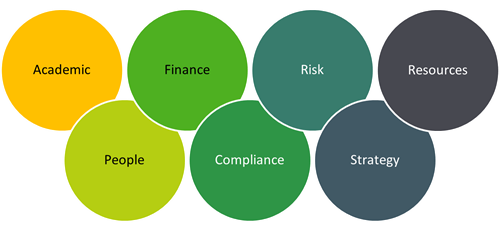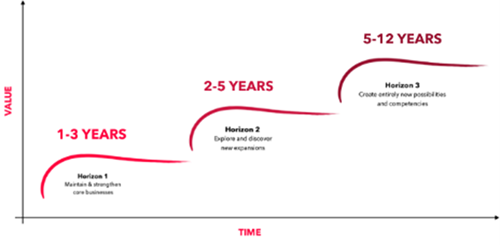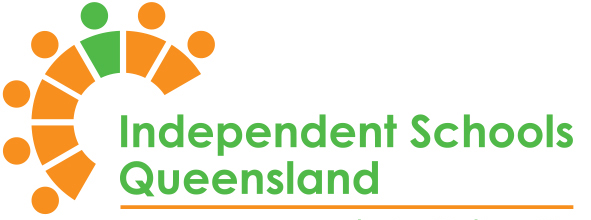The Board’s Role in Setting a School’s Educational Direction
When was the last time your board reviewed your school’s written statement of philosophy and aims?
Every independent school in Queensland is required by section 10 of the Education (Accreditation of Non-State Schools) Regulation 2017 to have a written statement of philosophy and aims:
10 Statement of philosophy and aims
- A school must have a written statement of philosophy and aims, adopted by its governing body, that is used as—
- the basis for the school’s educational program; and
- a guide for the school’s educational and organisational practices.
- The statement must be consistent with the Alice Springs (Mparntwe) Education Declaration.
Since this statement is a compliance obligation specifically prescribed by regulation and its adoption is required to come from a school’s governing body, school boards and councils have strong reasons to engage with the document. Below are some ideas on how to unpack this obligation from a governance perspective:
Written statement: While a school’s statement of philosophy and aims must be in written form, it is not specified what format it should use or how long it should be. Length and format should be conducive to providing utility to those staff who are charged with creating the school’s education program and guiding its educational and organisational practices. A test from John Carver’s Policy Governance Model could be utilised here: Boards should stop further expanding the statement once they are satisfied that any reasonable interpretation of it will deliver a satisfactory result.
Philosophy: Due to the rich diversity of the independent schooling sector, schools pursue a range of distinct educational philosophies. Some schools adopt their philosophy in large parts from external sources (say, Steiner or Montessori schools) while others develop theirs from the ground up. The ability to operate schools based on distinct educational philosophies is one of the foundations upon which independent schools strategically differentiate themselves from others in response to increased market segmentation. For many schools, their educational philosophy is a major strategic point of difference – a good reason for boards to be interested in this topic.
Aims: The constitutions of companies or associations operating schools usually include a description of the entity’s objects. The aims should be in harmony with these objects but will usually include more detail about educational aspirations useful in guiding educational decisions. Once aims are set, the governance issue is to determine the ways they are to be monitored. Many schools may find there are opportunities to align the aims of this statement with the goals from the strategic plan or KPIs already utilised.
Adopted by its governing body: While boards and councils need to adopt the statement of philosophy and aims, it is very reasonable for the school’s head to be leading its creation and revision. The extent to which boards or education committees have the capacity to review the document prior to adoption varies. It is fair to say that in the past, most boards used a light-touch approach. Increasingly, boards see this document as the one educational policy that legitimately sits in the governance space. If educational problems ever arise, reference to the statement should help the board determine whether it was adequately implemented.
Basis/guide for: A school’s leadership team is responsible for creating and implementing a compliant educational program (i.e. curriculum, assessment and reporting practices) and adequate educational and organisational practices (i.e. teaching and learning approaches). An education expert (such as an NSSAB “approved person”) should be able to see the links between these programs and practices and the written statement. Boards are not expected to have this expertise themselves. However, they do have a range of options to affirm alignment. This includes requiring an annual attestation by the Head confirming alignment; requesting a report and presentation from an educational leader within the school explaining the alignment; or commissioning an external curriculum review, such as the service Independent Schools Queensland (ISQ) provides.
Alice Springs (Mparntwe) Education Declaration: This declaration, made by all Australian Education Ministers in 2019, sets out a vision for education in Australia and a commitment to improving educational outcomes for young Australians. It proclaims two broad goals: (1) The Australian education system promotes excellence and equity, and (2) All young Australians become confident and creative individuals, successful lifelong learners, and active and informed members of the community. For a written statement to be compliant, consistency with these goals and their explanations has to be evident.
Engaging with the written statement of philosophy and aims in the manner explained above could reasonably be considered a governance task and may be profitably used to oversee, and not manage, the educational aspects of a school.
An Education Industry Knowledge Framework
Shaping the composition of a board through effective succession planning is of vital importance for boards to add continuous value to their school in a constantly changing environment. Considering the skills and professional backgrounds board members bring to the table, a common question pertains to the depth of education industry knowledge a board should have.
Corporate boards present their skills matrices in annual corporate governance statements. In its 2020 statement, Westpac considered 7 out of 10 board members to have deep skills working in, or advising, the banking and financial services industry. The board of Super Retail Group (in 2021) lists 43 percent of board members as having deep, and another 43 percent having broad consumer goods sector and retail business skills.
Evidently, this experience goes beyond the industry insights one can develop as a banking or retail customer. To what extent then can education industry knowledge be gained beyond one's experience as a student or parent and why does it matter?
Research1 suggests that boards with strong industry experience are more intimately aware of their industry's dynamics and strategic drivers, potentially leading to strategic advantages. They may also understand more deeply how their company creates value for stakeholders, how it can navigate risks and opportunities to their strategic benefit, and how to handle the regulatory environment confidently. In addition, board members with connections to key industry players may contribute an information advantage. Finally, an industry-aware board may have a more robust platform to oversee management's choices in pursuing opportunities.
On the flip side, increased acquaintance with the way things are done in an industry may blind directors to changing industry dynamics or disruptive and innovative opportunities. Further, a more similar background between directors and senior management may also lead to less diversity in viewpoints, which could at times lead to worse decision-making.
Whatever a school board's view is on appointing directors with an education background, all boards should have an active interest in developing their education industry expertise, to enhance their strategic thinking.
Ways to engage with current industry insights include:
- Receiving regular input about topics of interest through board papers prepared by the principal, school staff or external consultants, or from publications disseminated to the board. Consider asking ISQ's School Services team to provide short, virtual board presentations about pertinent education industry issues.
- Scheduling in-person visits to your school or to other schools, to provide hands-on industry experience that brings the board papers to life.
- Attending education industry events.
The below diagram can guide a board in developing a comprehensive industry knowledge base.

Insights from the academic domain support boards in different ways. Boards pursuing a strategy centred around an educational philosophy need to fully understand this philosophy to assess how it creates value for the school. Boards seeking a competitive advantage on academic outcomes may require academic industry knowledge to monitor educational data effectively. Boards that prioritise success in post-school destinations may find insights about future workforce requirements invaluable.
Through the people domain, boards ensure their understanding of student, staff and principal wellbeing matters is up-to-date, and they have the insights they need to engage in long-term workforce planning profitably.
The finance domain provides industry-specific insights into funding arrangements and industry benchmarks.
In the compliance domain, boards develop their currency in education-specific laws and regulations and understand the key stakeholders within the regulatory environment. This includes developing awareness of royal commissions or other inquiries that may have a downstream impact on schools.
The risk domain supports boards in developing their awareness of education-specific risks in areas such as child protection, duty of care, student mental health or disability discrimination, etc.
In the strategy domain, boards consider the industry-specific opportunities and threats that should be explored as part of a board's strategic thinking. This may include school-specific lessons from the pandemic, demographic changes in the school-aged population, movements in parent expectations etc.
Finally, the resource domain ensures that boards approving significant capital expenditure have an appropriate understanding of current trends in educational architecture and facilities master planning or education technology.
Boards that continually strive to broaden their industry knowledge in these domains may be increasing the utility of their strategic deliberations in partnership with the principal.
[1] Faleye, Hoitash & Hoitash, 2018. "Industry expertise on corporate boards," Review of Quantitative Finance and Accounting, Springer, vol. 50(2), pages 441-479, February.
The Three Horizons of Growth in Strategic Planning
What is the Three Horizons Framework?
A widely known framework to guide strategic thinking, McKinsey's Three Horizons Framework1 was developed to illustrate how an organisation can sustain an increasing value output by improving its current performance and concurrently maximising future opportunities for growth.
It is based on the finding that a typical business cycle will see diminishing increases of value generation the more time advances. If an organisation only works to improve its current portfolio of products and services, its ability to generate value will eventually deteriorate. To ensure constant growth, organisations must also explore and develop opportunities that could prove beneficial in the future. If they don't engage in long-term development activities, they will starve what could generate their future value.

The framework2 includes three strategic perspectives:
- Horizon One: Any strategic initiatives within this horizon aim to make the organisation's current business more effective and profitable. The focus is on maximising efficiencies and superior execution. Within this horizon, it is expected that initiatives will generate value within a one-to-three-year period.
- Horizon Two: Strategic projects in this horizon develop emerging opportunities that have the potential to create value within a two-to-five-year window. These projects work towards expanding the organisation's current offerings and ensure it is in a strong position to take advantage of the opportunities when they are ready to materialise.
- Horizon Three: In this horizon, organisations experiment with ideas that could be profitable down the road, within a five-to-twelve-year timeframe. These experiments are designed to explore opportunities that don't yet exist. To add some structure to these experiments, it is beneficial to cluster them around a small number of themes.
Application for schools
The Three Horizons Framework is useful for school boards and leaders as it helps to maintain a balanced emphasis on current and future opportunities. The framework also provides a common language for everyone within the school from the board down to articulate how they are investing and preparing for growth.
Too much concern around Horizon One performance (e.g. current school operations) can easily overwhelm other important efforts crucial to the school's future. By nature, a school will lean towards focusing on Horizon One performance unless boards and senior management champion developments in Horizons Two and Three that do not yet create value within the organisation.
Depending on each school's strategic position, Horizon Two may include master planning for future facilities or pursuing additional campuses, while Horizon Three could involve experimenting with paradigm shifts in educational approaches.
Boards and management can use the Three Horizons Framework as a blueprint for balancing attention to and investments in current school performance and opportunities for future growth.
[1] Enduring Ideas: The Three Horizons of Growth. McKinsey Quarterly – 1 December 2009
[2] https://www.boardofinnovation.com/blog/what-is-the-3-horizons-model-how-can-you-use-it/
Board Chair Interview
Ken Petty
Board Chairman, Saint Stephen’s College
Director since 2014 | Chairman since 2021
Ken is also on the board of Kimberley College (since 2019) and a former director of the Australian Industry Trade College.
What excites you about Saint Stephen’s College?
To put it succinctly, student journeys and outcomes, our community of people and our authentic approach. Our purpose centres on our students and I am excited about what we are able to achieve for them in conjunction with what we are able to achieve in our wider community. I am thrilled with the team of people we have, including our principal and those who are leading different parts of the school. The output of everyone’s efforts goes beyond just scores. We are proud of the typical character traits of our graduates and enjoy hearing about their stories and achievements beyond the school gate. There is also a lot to be excited by as we plan to continually refine what we offer to our students through our strategic plans, curriculum plans, workforce plans and campus plans.
What prompted you to become a board member?
Saint Stephen’s College was my second school directorship. My passion for education governance started with my first directorship at the Australian Industry Trade College. I had taught at TAFE as a young lawyer and as I advanced my career I looked for an opportunity to participate in a governance role. The AITC provided that opportunity and it was through that association that I was offered my second role at Saint Stephen's. I loved the experience at the AITC and after some due diligence, I jumped at the opportunity to work at another school. Part of the appeal was the strength of the College board itself which included education finance specialists Peter Hollett and John Somerset and former principals Cec Munns and Murray Evans.
How would you describe an effective board?
Board effectiveness comes down to good decision-making aligned to purpose, values and culture. Good governance and decision making often come down to common sense, ensuring that the right information is presented, the right level of enquiry is applied and the right people with the appropriate skills are on the board. This may change over time. Board culture plays a key role also and of course, there is a legal overlay to everything we do as directors. For us, the right mix of skills includes finance, education, legal, marketing and property.
What is your advice for new school board members?
Hopefully, as a new board member, you have already undertaken some due diligence before commencing including investigating what the school is about, what it stands for, what sets it apart and how it’s performing. Consider reading board and committee minutes going back five years. Inquire about any major past issues that you should be aware of. Ask for a tour of the campus and a copy of the Director's Manual.
Having joined, understand your role, the people on the board, what skills they bring and get to know the executive team. With good preparation, a new board member should be able to contribute immediately and on a continuous basis. Undertake research and education if you are new to the sector or need to understand what is expected of a director.
Which topics and issues should be on school board agendas in the next twelve months?
There are three main issues on my mind outside of the normal strategic framework. Firstly, the broad topic of diversity continues to challenge boards as they engage with changing societal expectations, conservative institutions and diverse stakeholder expectations. Secondly, modern governance practices are hitting school board rooms and the use of governance committees to guide boards in their development and review is becoming more commonplace.
Remuneration has become a hot topic as more is expected from directors. ISQ’s governance offerings and other providers are presenting opportunities for upskilling in governance practices. Thirdly, it would be a tragedy if we did not take away some positive lessons and changes from the COVID-19 experience. What can be incorporated into our normal mode of operation, both at a school and board level, to achieve better outcomes?
Recent

